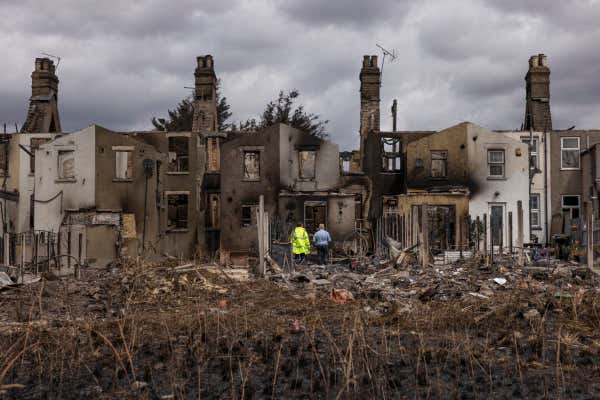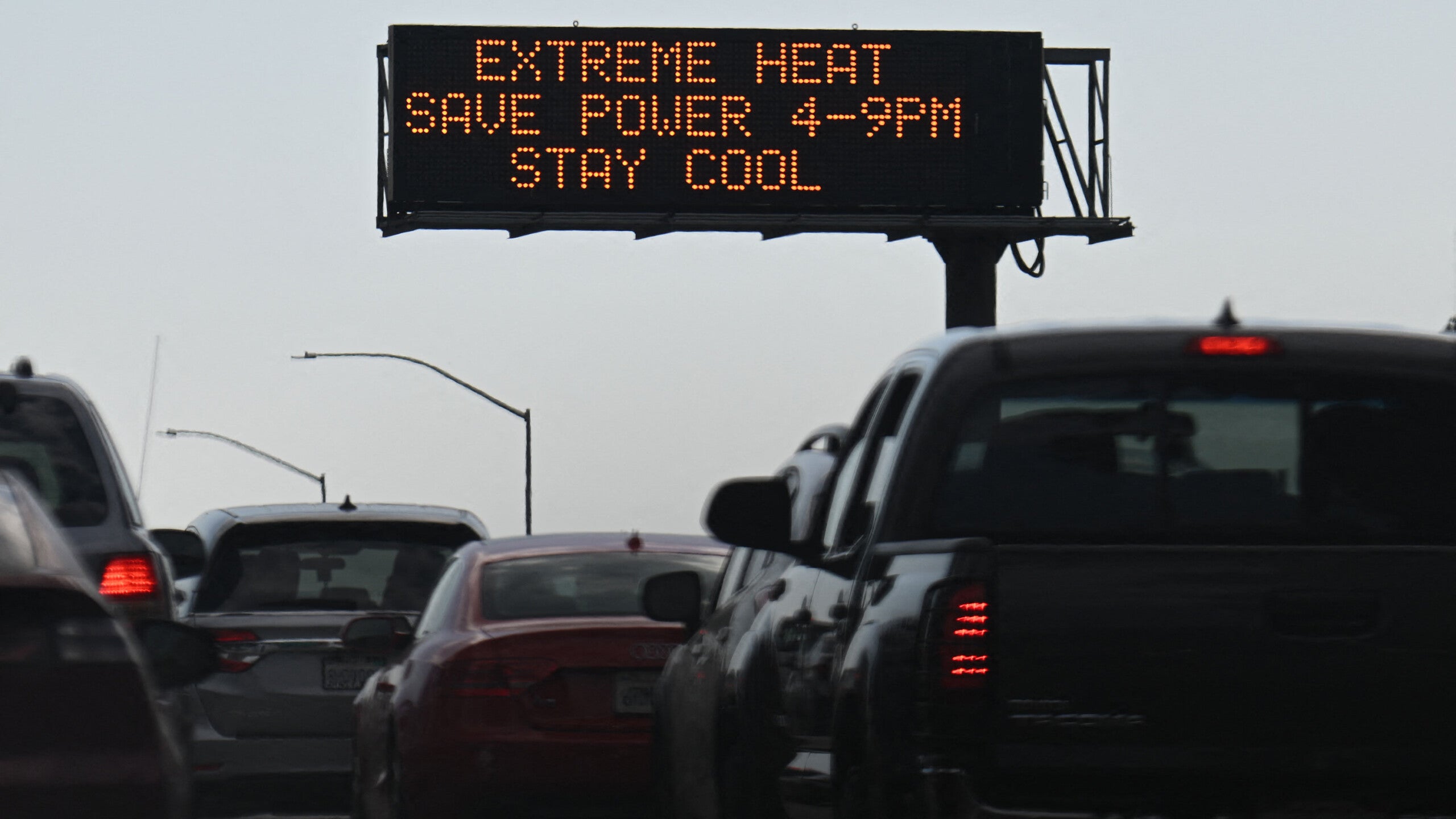The Impact Of Wildfires On The UK's Most Endangered Animals

Table of Contents
Habitat Loss and Fragmentation
Wildfires cause catastrophic habitat destruction, leaving endangered animals without essential resources such as food, shelter, and breeding grounds. This habitat destruction and fragmentation isolates populations, severely hindering genetic diversity and increasing their vulnerability to extinction. The effects on endangered species habitat are profound and long-lasting. This loss contributes significantly to biodiversity loss UK.
- Loss of nesting sites: Birds like the Dartford warbler, already facing pressure from habitat loss, are particularly vulnerable. Wildfires destroy their crucial nesting sites, leading to reduced breeding success and population decline.
- Destruction of foraging areas: Mammals such as the water vole rely on specific vegetation for food and shelter. Wildfires decimate these foraging areas, impacting their ability to find sustenance and survive.
- Habitat fragmentation and reduced genetic diversity: The adder, a vulnerable reptile, is negatively impacted by fragmented habitats. Isolated populations suffer from reduced genetic diversity, making them more susceptible to diseases and environmental changes.
- Increased vulnerability to predation: The destruction of cover and refuge provided by vegetation increases the vulnerability of endangered animals to predation.
Direct Mortality and Injury
The intense heat and flames of wildfires directly kill animals, while smoke inhalation can cause severe respiratory problems and death. Burns and other injuries further reduce their chances of survival, compounding the impact of habitat loss. This direct mortality contributes significantly to the decline of already endangered populations.
- Direct burning of vulnerable species: Amphibians such as the natterjack toad are particularly vulnerable to direct burning during wildfires. Their slow movement makes escaping the flames difficult.
- Smoke inhalation: Smoke inhalation can lead to acute respiratory distress and death in mammals and birds. The inhalation of toxic fumes can also cause long-term health problems.
- Severe burns and injuries: Animals suffering burns and injuries face reduced mobility, making them more susceptible to predation and less able to find food and shelter.
- Increased predation risk: Injured and weakened animals become easier targets for predators, further exacerbating the impact of wildfires.
Long-Term Impacts on Ecosystems
The effects of wildfires extend far beyond immediate mortality. They cause significant and long-term damage to ecosystems, impacting soil quality, water resources, and the overall biodiversity of the affected areas. Ecosystem recovery after a major wildfire can take decades, even centuries.
- Soil erosion: The loss of vegetation cover leaves the soil exposed to erosion by wind and rain, leading to habitat degradation and further loss of biodiversity.
- Water pollution: Ash and debris from wildfires pollute water sources, harming aquatic species and reducing the availability of clean water for other animals.
- Alteration of plant communities: The changes in plant communities after a wildfire can negatively impact the food sources available for many animals, disrupting the food chain.
- Disruption of ecological relationships: Wildfires can disrupt intricate ecological relationships between species, potentially leading to cascading effects throughout the entire ecosystem.
The Role of Climate Change
Climate change is a key driver of increased wildfire risk in the UK. Hotter, drier summers create ideal conditions for wildfires to ignite and spread rapidly, exacerbating the threat to endangered animals. The increased frequency and intensity of these events pose a major challenge for wildlife conservation.
- Increased frequency and intensity of heatwaves: Prolonged periods of extreme heat dry out vegetation, creating flammable conditions.
- Longer periods of drought: Drought conditions increase the flammability of landscapes, making them more susceptible to wildfires.
- Changes in rainfall patterns: Altered rainfall patterns can disrupt vegetation growth and reduce the resilience of ecosystems to wildfires.
Conclusion
Wildfires pose a severe threat to the UK's most endangered animals, causing direct mortality, habitat destruction, and long-term ecosystem damage. The increasing frequency and intensity of these events, driven by climate change, demand urgent action. The impact of wildfires on endangered animals is a serious concern demanding immediate attention and coordinated conservation efforts. The interconnectedness of climate change, habitat loss, and wildfire frequency highlights the urgency of comprehensive strategies to protect vulnerable species.
We must strengthen conservation efforts to protect these vulnerable species and their habitats. Learn more about how you can support organizations working to mitigate the impact of wildfires on the UK's endangered animals and help build a more resilient future for our wildlife. Get involved in wildfire prevention and endangered animal conservation today! Combat the effects of wildfires and safeguard the future of the UK's most endangered animals. Every effort, from supporting conservation charities to advocating for responsible land management, contributes to mitigating the devastating effects of wildfires on the UK's precious wildlife.

Featured Posts
-
 Record High Temperatures La And Orange Counties Face Extreme Heat Emergency
May 13, 2025
Record High Temperatures La And Orange Counties Face Extreme Heat Emergency
May 13, 2025 -
 Experience Greece In Portola Valley A New Taverna Opens Its Doors
May 13, 2025
Experience Greece In Portola Valley A New Taverna Opens Its Doors
May 13, 2025 -
 Diskriminacia Pri Prenajme Nehnutelnosti 74 Respondentov Odmieta Romov
May 13, 2025
Diskriminacia Pri Prenajme Nehnutelnosti 74 Respondentov Odmieta Romov
May 13, 2025 -
 Deja Blue Returns Former Tar Heel Faces Duke In Ncaa Tournament Showdown
May 13, 2025
Deja Blue Returns Former Tar Heel Faces Duke In Ncaa Tournament Showdown
May 13, 2025 -
 Erneuter Einsatz An Braunschweiger Grundschule Entwarnung Nach Bombendrohung
May 13, 2025
Erneuter Einsatz An Braunschweiger Grundschule Entwarnung Nach Bombendrohung
May 13, 2025
Latest Posts
-
 Mob Land Premiere Cassie And Alex Fines Stunning Red Carpet Moment
May 13, 2025
Mob Land Premiere Cassie And Alex Fines Stunning Red Carpet Moment
May 13, 2025 -
 Singer Cassie Expecting Baby Number Three
May 13, 2025
Singer Cassie Expecting Baby Number Three
May 13, 2025 -
 Mob Land Premiere Pregnant Cassie Ventura And Alex Fine Make A Statement
May 13, 2025
Mob Land Premiere Pregnant Cassie Ventura And Alex Fine Make A Statement
May 13, 2025 -
 Mob Land Premiere Photos Of Pregnant Cassie And Alex Fine
May 13, 2025
Mob Land Premiere Photos Of Pregnant Cassie And Alex Fine
May 13, 2025 -
 Cassie Venturas Third Pregnancy Announcement
May 13, 2025
Cassie Venturas Third Pregnancy Announcement
May 13, 2025
